Middle East
Over 140,000 displaced in a week in Gaza amid renewed Israeli attacks: UN | Israel-Palestine conflict News

Israel’s renewed attacks on the Gaza Strip have continued for a ninth straight day, killing dozens of Palestinians, as the United Nations says more than 140,000 people have been displaced since last week.
The UN’s humanitarian agency, OCHA, said 142,000 Palestinians were forcibly displaced since Israel resumed its war on Gaza on March 18.
“Fleeing with only a few personal belongings, many people are now staying on the streets, in desperate need of food, drinking water, and shelter essentials,” the agency said late on Tuesday.
Israeli attacks killed at least 39 people, including children, and wounded 124 across Gaza in 24 hours, the Gaza Health Ministry said on Wednesday. Attacks were reported across the enclave, including in northern Gaza’s Jabalia, as well as Khan Younis and Rafah in the south.
In Jabalia, Israeli military planes hit a house packed with civilians, killing at least eight of them. Among the victims was a six-month-old baby.
At the Bureij refugee camp in central Gaza, a residential flat was targeted, killing one child.

“This night has been marked by utter devastation, with Israeli forces bombarding densely populated areas in central and northern Gaza,” said Al Jazeera’s Tareq Abu Azzoum, reporting from Deir el-Balah in central Gaza.
“People here are quite terrified of what might come next as there’s been no breakthrough in the ceasefire talks between Israel and Hamas.”
Tens of thousands displaced
According to the UN’s OCHA, about 250,000 Palestinians are in the areas slated for evacuation in Rafah, Khan Younis and northern Gaza, including more than 50,000 people at 240 sites for internally displaced people.
Al Jazeera’s Hani Mahmoud, reporting from Gaza City in the north, said displaced people were seeking all and any place that would provide “even just a little bit of safety for them”.
“They are moving into tent sites, overcrowded areas, they are moving into the near-collapsing, partially destroyed evacuation centres,” he said.
“They are lacking the most basic necessities to survive the difficult conditions, the by-products of displacement – hunger, thirst and trauma, and above all, the constant fear of being attacked in their tents.”
The displacement is being driven mainly by Israel’s forced evacuation orders and its destruction of homes and public infrastructure, OCHA said.
Since Israel resumed the war, its military has issued six notices, placing about 15 percent of Gaza under evacuation, it added.
Humanitarian aid in peril
Gaza’s remaining water system is also in peril, and will completely collapse if fuel supplies run out, all but cutting off people’s access to clean water, according to Doctors Without Borders, known by its French acronym MSF.
The medical NGO’s statement came as Israel’s punishing blockade entered its 25th day. MSF said the lack of access to safe water is already having dire consequences for people’s health.
“The sheer number of children with skin conditions is a direct result of Gaza’s destruction and blockade,” said Chiara Lodi, the MSF medical team coordinator in Gaza.
“In addition to treating adults and children who have severe war injuries, our staff are treating an increasing number of children with entirely preventable skin diseases like scabies, which is not only uncomfortable, but in severe cases, sees them scratch their skin until it bleeds which can lead to infection.”
The siege began on March 2 after Israel reneged on the ceasefire deal and sought to extend the first stage of the three-phase agreement that expired – without committing to ending the war on Gaza.
On top of the number of civilians who have died, OCHA said at least eight aid workers have been killed in Gaza since Israel resumed its war last week, bringing the total number killed since the breach of the ceasefire to 399.
Middle East
Israeli army only finds ‘professional failures’ in Gaza aid worker killings | Israel-Palestine conflict News
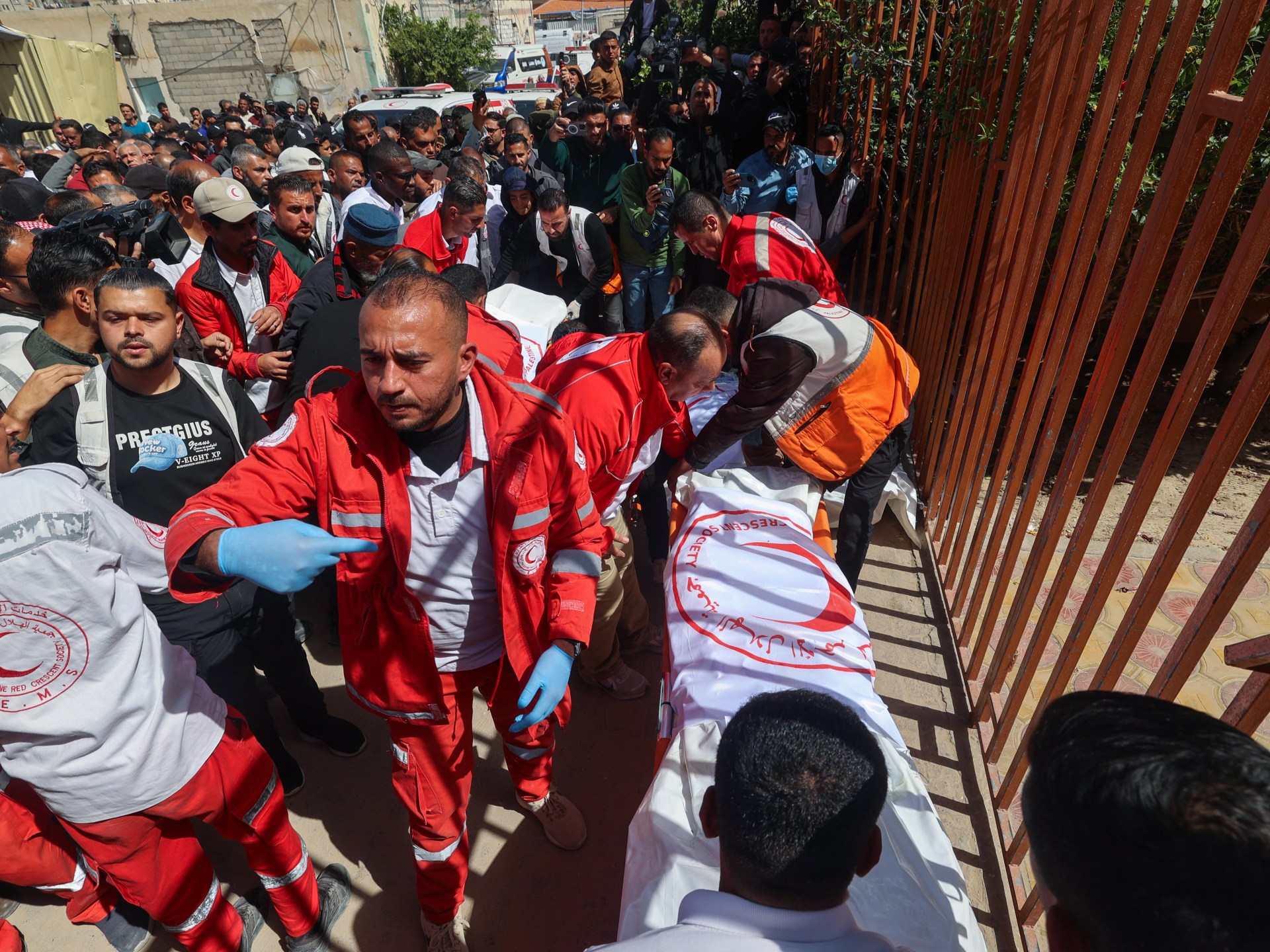
The Israeli military has released details of an investigation into its own killing of 15 Palestinian paramedics and aid workers in Gaza last month, saying its code of ethics was not violated and only one soldier is dismissed, in an attack that sparked outrage in the international community.
The Palestine Red Crescent Society (PRCS) and the Israeli rights organisation Breaking the Silence rejected the findings of the Israeli probe on Sunday.
PRCS’s president told Al-Araby TV that the Israeli narrative on the killings in Rafah was “contradictory”.
“It is incomprehensible why the occupation soldiers buried the bodies of the paramedics in a criminal manner,” Younis al-Khatib said.
Al-Khatib added that the Israeli army communicated with the paramedics before killing them and that the evidence – including a video showing their ambulances flashing emergency lights – proved “the falsity of the occupation’s narrative regarding the limited visibility at the site”.
“An independent and impartial investigation must be conducted by a UN body,” he said.
PRCS, which had medics killed by Israel in the incident, also denounced the Israeli report as “full of lies” on Sunday. “It is invalid and unacceptable, as it justifies the killing and shifts responsibility to a personal error in the field command when the truth is quite different,” Nebal Farsakh, spokesperson for the organisation, told the AFP news agency.
The PRCS said last week that it received confirmation from the International Committee of the Red Cross (ICRC) that one of its medics who was missing is being held by Israel.
🚨Urgent: We have been informed by the International Committee of the Red Cross that PRCS medic Assad Al-Nsasrah is being held by the Israeli occupation authorities. His fate had remained unknown since he was targeted along with other PRCS medics in #Rafah.
📢We call on the… pic.twitter.com/l0oOxujS8G— PRCS (@PalestineRCS) April 13, 2025
The Israeli army on Sunday claimed that six of the aid workers who were killed and buried in a shallow mass grave along with their ambulances were Hamas “terrorists”, without providing any evidence.
It admitted its probe detected a series of “professional failures”, including partial and inaccurate reporting by the commanding officers in the field invading southern Gaza’s Rafah.
The deputy commander of the Golani Reconnaissance Battalion will be dismissed, while the commanding officer of the 14th Brigade is to receive a reprimand.
The examination also found “no evidence to support claims of execution or that any of the deceased were bound before or after the shooting”, despite the testimonies and the evidence.
The Israeli military had initially claimed that the ambulances and aid workers were not clearly marked as first responders and approached its troops “suspiciously”.
A mobile phone video recorded by one of the killed aid workers that was obtained by the New York Times showed that the crew were clearly marked and visible to Israeli forces, and were killed by Israeli fire that lasted several minutes.
United Nations and Palestinian officials later found the mass grave and the bulldozed ambulances and bodies after Israeli authorities granted access to the area of the mostly destroyed city of Rafah bordering Egypt.
‘Another day, another cover-up’
The Israeli anti-occupation group Breaking the Silence said the military investigation is “riddled with contradictions, vague phrasing, and selective details”.
“Not every lie has a video to expose it, but this report doesn’t even attempt to engage with the truth,” the group said. “Another day, another cover-up. More innocent lives taken, with no accountability.”
But far-right voices in the government of Israeli Prime Minister Benjamin Netanyahu believe the army is going too far in punishing the soldiers.
Itamar Ben-Gvir, Israel’s ultranationalist national security minister, said the decision to dismiss the deputy commander was a “grave mistake” that must be reversed.
“Our combat soldiers, who are sacrificing their lives in Gaza, deserve our full support,” he said.

‘Report invites many questions’
Human rights lawyer Geoffrey Nice told Al Jazeera that the findings of the probe raise questions about the Israeli military’s conduct in Gaza and the thoroughness of the investigative process.
“It’s a pretty surprising document. It’s also a document that invites many questions that it will be difficult, I suspect, for the [Israeli military] to answer,” Nice said in a television interview.
“For example, [there is] the proposition that six of these people were Hamas, presumably members of Hamas on active [military] service, not people who might have been associated with Hamas in some way. No documentary evidence at all is identified [for that].”
Israel has a track record of denying accusations of wrongdoing and contradicting its own earlier statements.
Past investigations have exonerated the armed forces or placed the blame on a single individual without broader repercussions.
The UN accused the Israeli military of being responsible for the killing of the 15 aid workers, along with the killing of a Bulgarian UN staff member and wounding of six other foreign staff in Gaza’s Deir el-Balah last month.
The organisation has been forced to significantly cut its staff in Gaza as the war’s death toll continues to mount.
Middle East
Houthis say US bombs Yemen again, targeting capital Sanaa | Israel-Palestine conflict News
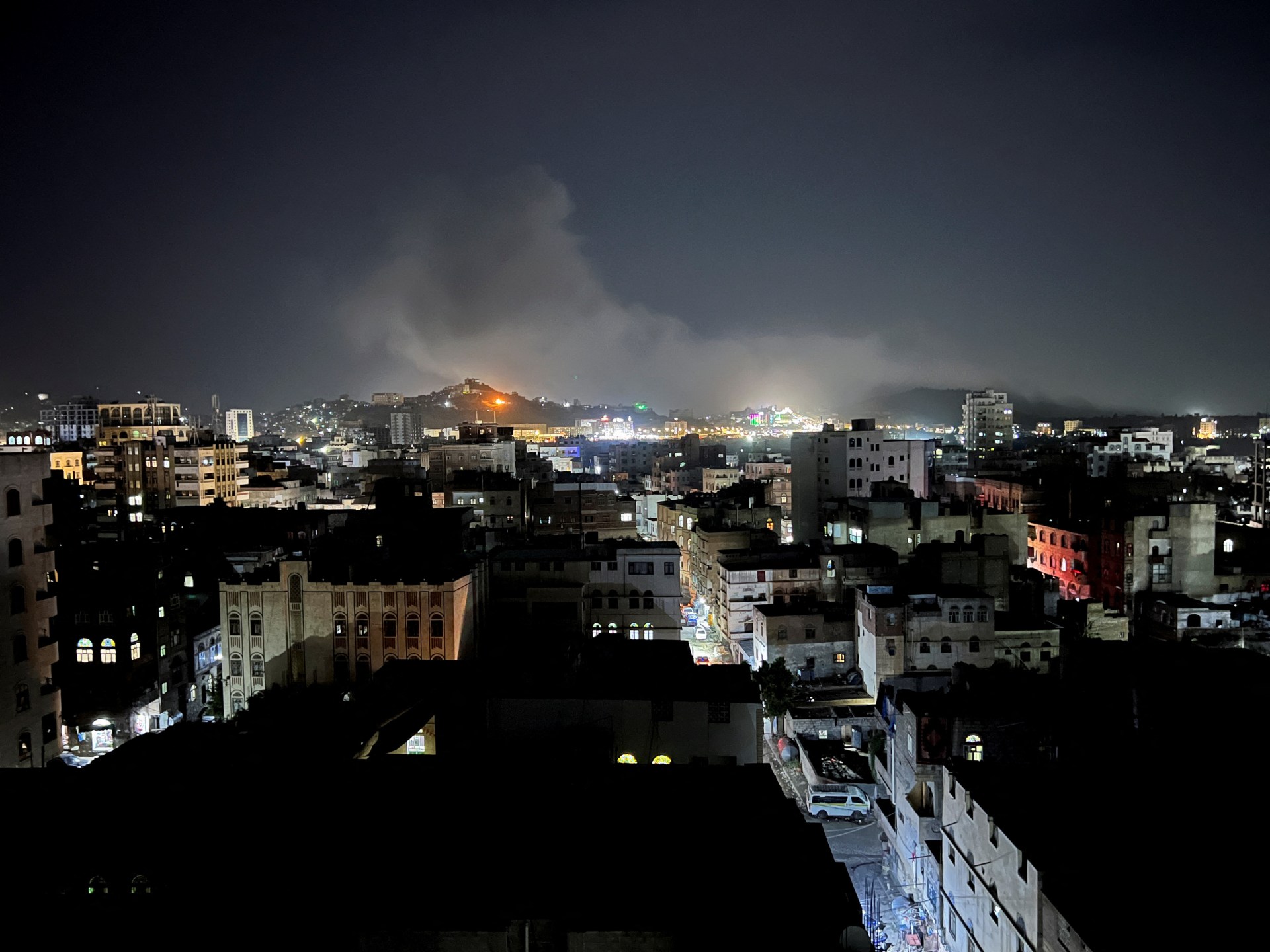
United States President Donald Trump’s administration announced a major military offensive against the Houthis a few weeks ago.
The United States has carried out more air strikes in Yemen’s capital Sanaa, after targeting Kamaran Island and Marib governorate earlier, Houthi media outlets report.
No details on casualties have been provided yet.
In Sanaa, two US airstrikes targeted the area of Attan, which has been controlled by the rebel movement since 2014. US airstrikes also reportedly targeted a sanitation project in the Asir area, as well as the Furwah neighbourhood and a popular market in the Shoub district, according to Houthi media.
The strikes on Sunday come a day after the US launched 13 strikes on Hodeidah’s port and airport, and three days after its deadliest attack to date targeted the Ras Isa port, also in Hodeidah, killing at least 80 people and wounding more than 150.
Houthi-held areas in Yemen have been subjected to near-daily air strikes by Washington. Civilians have been targeted, families wiped out, military sites destroyed and soldiers killed.
More than 200 people have been killed since US President Donald Trump’s administration announced a major military offensive against the Houthis in March. It said the air strikes are aimed at forcing the group to stop threatening ships sailing on the Red Sea on a route crucial to international trade.
Since November 2023, the Houthis have reportedly launched more than 100 attacks on vessels they say are linked to Israel in response to Israel’s war on Gaza and in solidarity with Palestinians.
Houthi attacks have paralysed shipping through the Suez Canal, a vital waterway through which approximately 12 percent of global shipping traffic normally passes, forcing many companies to resort to costly alternative routes around the Cape of Good Hope in South Africa.
The Houthis halted attacks on shipping lanes during a two-month ceasefire in Gaza earlier this year. But they vowed to resume strikes after Israel renewed its assault on the besieged enclave last month.
The Houthis, also known as Ansar Allah or “supporters of God”, emerged in the 1990s but rose to prominence in 2014 when they seized Sanaa and forced President Abd-Rabbu Mansour Hadi to flee the country.
Middle East
Palestinians in Gaza, West Bank mark sorrowful Easter amid Israeli attacks | Israel-Palestine conflict News
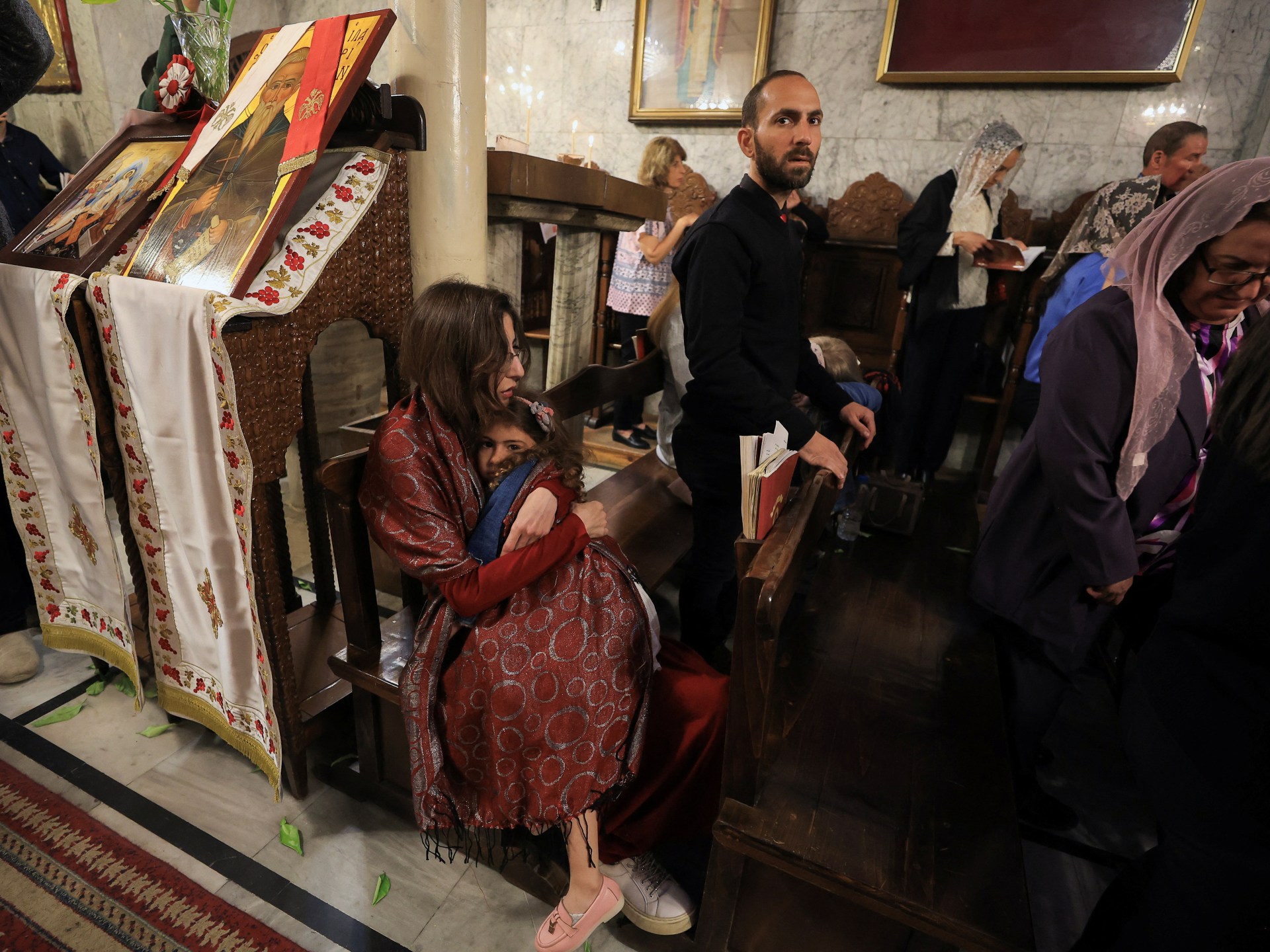
Palestinian Christians in Gaza, the occupied West Bank and Jerusalem have marked a second sombre Easter under punishing conditions and Israel’s war on Gaza.
In the Gaza Strip, where no food or aid has been allowed in by the Israeli military for nearly 50 days, people observed Easter on Sunday at the Greek Orthodox Church of Saint Porphyrius in Gaza City amid death and destruction.
Easter celebrations were limited to religious rituals as families cancelled other gatherings fearing more bombs would be dropped by Israeli warplanes, which killed dozens of people in the besieged enclave on Sunday.
Israeli forces bombed the Saint Porphyrius compound in October 2023, just days after the war began in the aftermath of Hamas-led attacks on Israel. Israel said it was targeting “terrorists”.
That attack killed at least 18 displaced Palestinians who had sought refuge in the church. More than 51,000 Palestinians have been killed by the Israeli army since the start of the war.
During a brief appearance before thousands of Catholic pilgrims gathered in St Peter’s Square for the Vatican’s open-air Easter Mass, Pope Francis renewed his call for a ceasefire in Gaza.
He also called on the Palestinian armed group Hamas and other groups to release the remaining captives held in Gaza.
Heavy restrictions in occupied West Bank
Israeli authorities prevented many Christians, including Palestinians, from accessing holy sites for Easter in the occupied West Bank.
Israeli police clashed with Christian worshippers and even a priest as they tried to access the Church of the Holy Sepulchre in occupied East Jerusalem.
The Old City of Jerusalem was in effect turned by Israeli authorities into a military outpost, said Fathi Nimer, Palestine policy fellow at the Al-Shabaka think tank.
“Some would say that there are now more soldiers, security and police officers than worshippers around the Holy Sepulchre,” he told Al Jazeera from Ramallah in the West Bank on Sunday.
“There are dozens of checkpoints within the city, and these limitations have not only impacted Palestinian Christians from the West Bank but also from Jerusalem itself and within the 1948 territories.”
Nimer said people were beaten, and Israeli officers and onlookers directed insults and slurs towards Christians.
Only about 6,000 Palestinians from the West Bank received permits to attend Easter services this year, and even the representative of the Vatican in Palestine was denied entry into the church.
Nimer said a tightening Israeli chokehold over holy places in the past few years has led to a dwindling number of worshippers of Palestinian origin.
“This is all part of the wider war on Palestinian culture and identity. Israel is basically saying they have an exclusive claim to Jerusalem and all of Palestine,” he said.
‘I don’t have a permit to go as a pastor’
Mitri Raheb, a Palestinian pastor and theologian and founder and president of Dar al-Kalima University in Bethlehem, concurred that current Israeli restrictions are among the toughest.
“I myself as a pastor don’t have a permit to go for the Holy Week, which is the most important week for Christians throughout the year because Jesus was crucified and risen in Jerusalem,” he told Al Jazeera.
“The Palestinian-Christian community that has been there for 2,000 years cannot go there to celebrate and mark this where it all happened.”
Raheb said incitement against Palestinian Christians, especially clergy members, has also been on the rise with dozens of incidents of Israeli settler attacks reported this year.
“One of the first things you read about in church about Jesus is that he was like a lamb led to the slaughter. But when you hear this today as Palestinian Christians, you think it’s our whole people being led to slaughter, considering what is happening in Gaza.”

Israeli settlers and politicians, backed by armed police and soldiers, have also been increasingly storming the Al-Aqsa Mosque compound to perform Talmudic rituals and challenge its status quo.
Non-Muslims are not allowed to worship at the compound of Islam’s third holiest site, which is located in East Jerusalem, as part of the status quo agreement that the Israeli government claims it remains committed to.
Pope Tawadros II, head of Egypt’s Coptic Orthodox Church, strongly condemned the Israeli onslaught on Gaza.
“Palestinians are subject to the most horrific forms of injustice in their daily lives amid the destruction of their homeland,” he told state television during Easter celebrations.
-
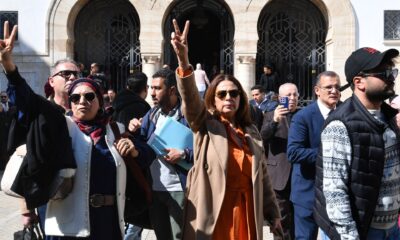
 Middle East2 days ago
Middle East2 days agoTunisian court hands opposition figures lengthy jail terms | Human Rights News
-
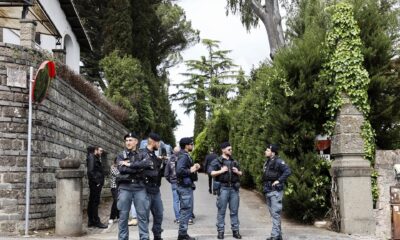
 Middle East2 days ago
Middle East2 days agoIran says progress in nuclear talks with US, confirms third round next week | News
-

 Sports2 days ago
Sports2 days agoShohei Ohtani misses Los Angeles Dodgers’ win over Texas Rangers as he awaits birth of first child
-
Conflict Zones2 days ago
Could an earthquake shift the balance in Myanmar’s civil war? | Military News
-

 Sports2 days ago
Sports2 days agoRory McIlroy could go onto win 10 majors now Masters ‘shackles are off,’ says men’s captain of his hometown golf club
-
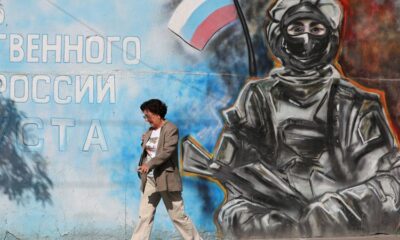
 Europe2 days ago
Europe2 days agoTrump administration ready to recognize Russian control of Crimea as part of framework to end Ukraine war, source says
-
Middle East2 days ago
Israeli bombardment of Gaza kills 92 in two days: Health Ministry | Israel-Palestine conflict News
-

 Africa2 days ago
Africa2 days agoDRC: Kabila arrives in rebel-held Goma after return from exile


